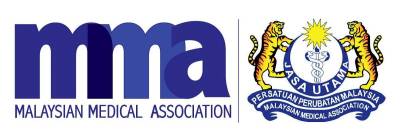PETALING JAYA: The Malaysian Medical Association (MMA) has unveiled an ambitious healthcare reform agenda for Budget 2026, calling on the government to more than double public healthcare spending from 2.4% to 5% of the nation’s GDP while addressing critical workforce shortages that threaten the sustainability of the country’s healthcare system.
In a press statement today, MMA president Datuk Dr Thirunavukarasu Rajoo emphasised that healthcare must be viewed as an investment in Malaysia’s future rather than merely an expenditure, warning that without significant reforms, the system risks collapse under mounting pressures.
The association’s most urgent priority centres on addressing severe shortages and retention issues plaguing the public healthcare workforce.
MMA has called for immediate action to absorb all remaining contract doctors into permanent positions, welcoming the government’s commitment to abolish the contract system.
The organisation also urged an increase in doctors’ on-call allowances from the current outdated rate of RM9.16 per hour to RM25 per hour, describing it as a meaningful adjustment that reflects the workload, responsibilities, and sacrifices made by medical professionals.
The brain drain affecting specialists has reached alarming rates, with remuneration, career progression, and excessive workload identified as the key drivers. To address these systemic issues, MMA has proposed establishing a national dashboard to map healthcare workers and services nationwide, ensuring transparency and equitable distribution of resources. This dashboard would incorporate healthcare norms such as recommended ratios of healthcare workers, hospital beds, equipment, and facilities to patient numbers across departments, enabling better planning and resource allocation.
To fund the proposed increase in healthcare spending, MMA has put forward a pragmatic financing strategy. The association recommends removing the sugar subsidy and expanding the sugar tax on sugary drinks, with revenues ringfenced specifically for Ministry of Health use. This approach would simultaneously discourage unhealthy consumption while channeling resources directly into strengthening healthcare infrastructure. Additionally, MMA proposes raising the public healthcare registration fee from RM1 to RM5 at primary care clinics and from RM5 to RM25 at specialist outpatient clinics, with all proceeds directed toward facility maintenance and upkeep. The exemption for B40 patients would continue to ensure accessibility for lower-income Malaysians.
The association has also called for digitalisation to become a cornerstone of healthcare reform, noting that without stable internet access, basic hardware, and reliable phone coverage, Electronic Medical Records systems will fail.
MMA pointed out the unacceptable reality that some hospitals still have “dead zones” without phone connectivity, hampering efficient healthcare delivery. The organisation urged standardisation of patient ID stickers nationwide to reduce errors, prevent medicolegal risks, and achieve long-term cost savings. Budget 2026 should also provide grants to clinics, pharmacies, and dental practices to support digitisation in line with the 13th Malaysia Plan.
Addressing the mounting burden of non-communicable diseases, which cost Malaysia RM64.2 billion or 4.2% of GDP in 2021 largely due to productivity losses, MMA stressed that strengthening prevention must be a top priority. The association called for funding preventive screenings in private clinics and eliminating the referral fee gap between general practitioners and government health clinics to improve access. MMA also proposed fully outsourcing the national immunisation programme, civil service health screenings, and public university pre-entry health checks to private GPs through structured public-private partnerships, with all medical records maintained securely through the MySejahtera platform.
The MySejahtera app should be enhanced to provide more personalised care while serving as a platform to map participating private GP clinics in public-private collaborations. To reduce NCD risk factors, the government must enforce clear food labelling, mandate healthier food in school canteens, and require calorie information at all food outlets. Tax relief should also be extended for Malaysians adopting healthier lifestyles, including purchases of sports equipment, gym memberships, and participation in recreational sports.
MMA has also called for an expansion of positions for counsellors, clinical psychologists, and physiotherapists, especially for mental health and elderly care, while simplifying claims for public health specialists and giving them parity with clinical specialists. The association hopes the government will increase the budget for the Madani Medical Scheme to RM150 million to ensure its continued success and wider reach.
With elderly care costs projected to reach RM21 billion or 1.08% of GDP by 2040 according to the Journal of Health Policy and Outcomes Research, Budget 2026 must start preparing for this demographic shift. MMA urged greater investment in home care services to keep seniors healthy within their communities, reducing unnecessary hospital admissions. The country needs more geriatricians, palliative care specialists, and allied health professionals, while hospitals and clinics should be upgraded with age-friendly facilities. Targeted allocations should ease out-of-pocket spending for seniors through subsidies, medical devices, affordable micro-insurance, and community caregiver support.
The association also highlighted critical gaps in the current system, noting that manpower shortages are causing oncology clinics to run late into the night, ICU nurse-to-patient ratios to fall below accepted standards, and outpatient wait times to stretch unacceptably long. Budget 2026 should incentivise private hospitals to lend diagnostic machines after office hours through a tax relief programme, maximising existing resources. Formalising GP-Health Clinic-Hospital clusters with specific budget allocations would strengthen continuity of care, with integration supported via the MOH-MCMC Digital Fund.
MMA emphasised that governance frameworks must be modernised, starting with a review of the outdated Private Healthcare Facilities and Services Act. The association pointed to the success of public-private collaboration during COVID-19, when GP-MOH cooperation enabled one of the highest vaccination rates in the world, arguing this model should be replicated in national health programmes.
Dr Thirunavukarasu concluded by stating that with stronger collaboration, better funding, and fairer distribution of resources, Malaysia can reduce NCD complications, save billions in productivity losses, and protect its ageing population. The MMA stands fully prepared to engage with the Ministry of Health and all stakeholders to strengthen and improve the nation’s healthcare system.
